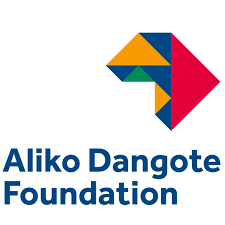
President Muhammadu Buhari has approved €18.94 million counterpart funding for a deal that will see Siemens AG upgrade the nation’s dilapidated power infrastructure.
Nigeria, Africa’s most populous nation, last year contracted the German engineering company to rehabilitate and expand its electricity grid.
The president granted “anticipatory approval” for €18.94 million, or 15 percent of the cost, as counterpart funding for the project, Finance Minister Zainab Ahmed said. The balance of 85 percent will be provided by Euler Hermes Group SAS, and backed by the German government, on concessionary terms with a three-year moratorium, a 12-year repayment period at “an interest rate of Libor-plus 1 percent to Libor-plus 1.2 percent.”
The project will be implemented in three phases to be completed by 2025 when Nigeria estimates its on-grid transmission capacity would reach 25,000 megawatts. The West African nation has an installed capacity of 13,000 megawatts, from which only a daily average of 3,500 megawatts is dispatched to consumers due to a poor transmission and distribution network.
“With the First phase of The Presidential Power Initiative about to kick off, the Nigerian Power Sector is about to witness unprecedented positive development.
“We look forward to giving Nigerians stable and affordable electricity supply,” Minister of Power, Sale Mamman wrote on his twitter handle.
The deal with Siemens could see a boost in the country’s electricity generation and transmission to 25,000 megawatts. The funding, which was approved at the cabinets meeting has been described as a huge step toward improving the state of energy supply in the country, which has frustrated economic growth and development across the value chains.
As soon as the government announced the approval, Siemens also announced that it would start work on the pre-engineering contract, that would kick-start work on Nigeria’s 25,000 megawatts expansion project.
According to the energy firm; “The pre-engineering contract forms the initial step in the Presidential Power Initiative (PPI), formerly the Nigeria Electrification Roadmap, outlined by Siemens and the Federal Government of Nigeria in July 2019.
“The PPI project aims to upgrade the electricity network to achieve the operational capacity of 25,000 megawatts (MW) from the current average of around 4,500 MW, through a series of projects spanning three phases.
Siemens said in a statement that it would begin pre-engineering works for the transmission, distribution, and meter data management systems (MDMS) infrastructure across the country, to enable the development of a functional, efficient and reliable electricity grid system. Comprehensive studies and power system analysis software for the Nigerian utilities are also included.
According to the firm, “Nigeria’s power system is suffering from an imbalance between power generation and demand. Despite more than 8,000 MW of operational power generation capacity in the country, only an average of 4,500 MW reliably reaches consumers.
“This inadequate power supply results in regular brownouts and blackouts and has restrained Nigeria’s economic development. Raising Nigeria’s operational electricity capacity to 25,000 MW will power various industries and businesses, as well as significantly improve access and reliability of power supply to the Nigerian people.
“This project will also facilitate the creation of thousands of jobs while generating new opportunities for small and medium enterprises (SMEs) across the country. This will in turn increase Nigeria’s GDP and boost economic productivity.”
Attempt to address the issue of capacity in the time past was frustrated by bureaucracy and political intervention, resulting in the stunted growth of the sector and the eventual transmission of same to the entire economy.















